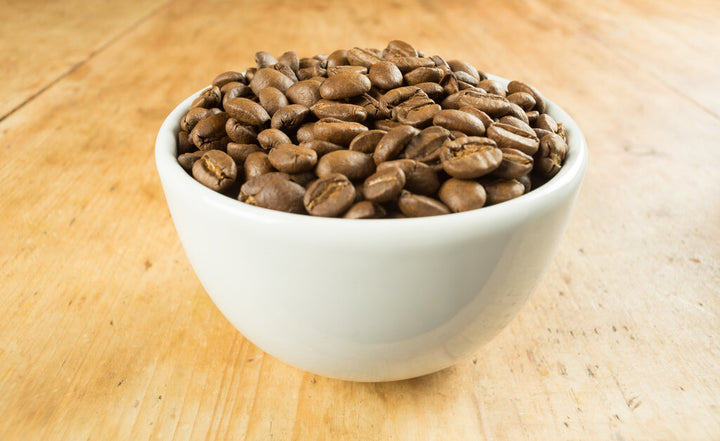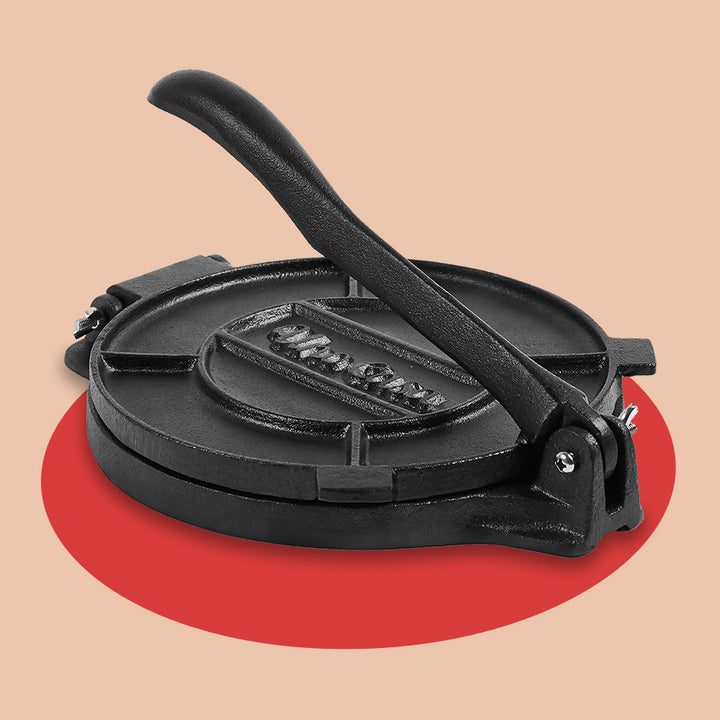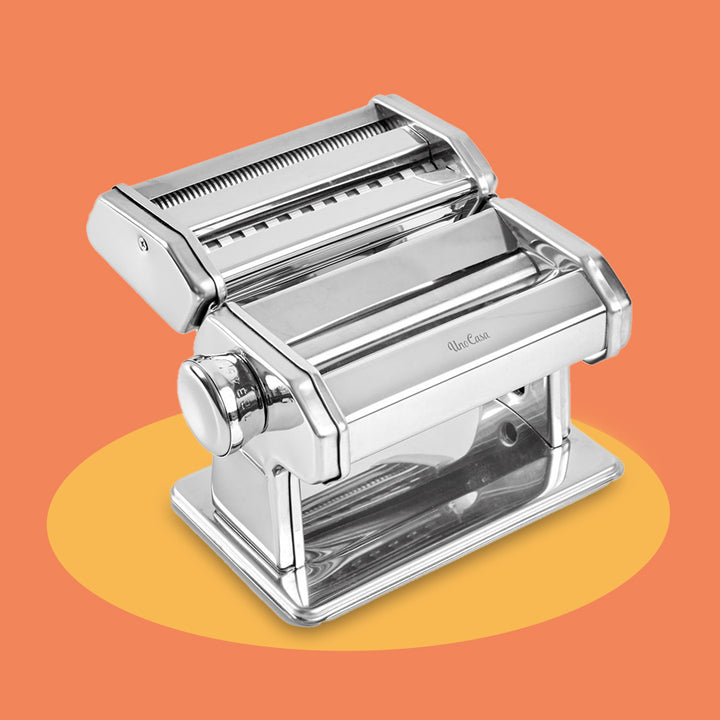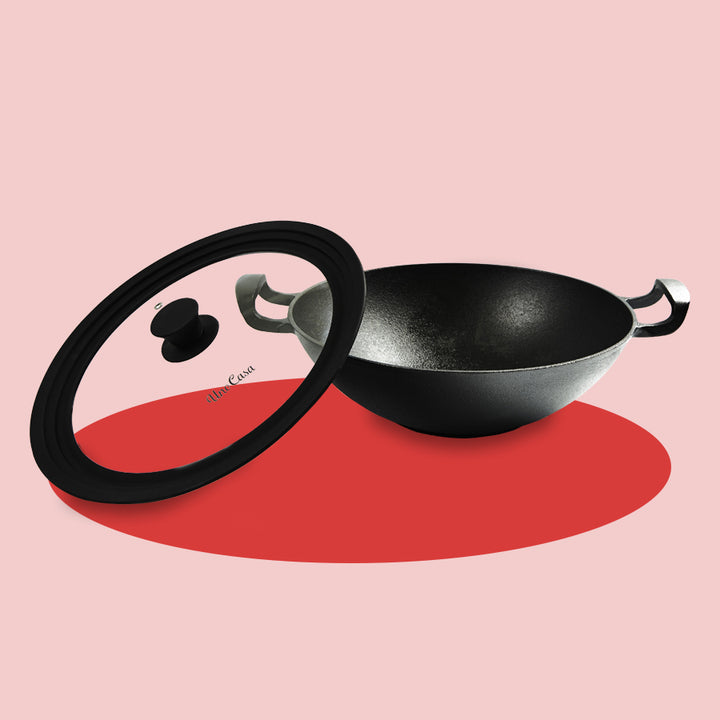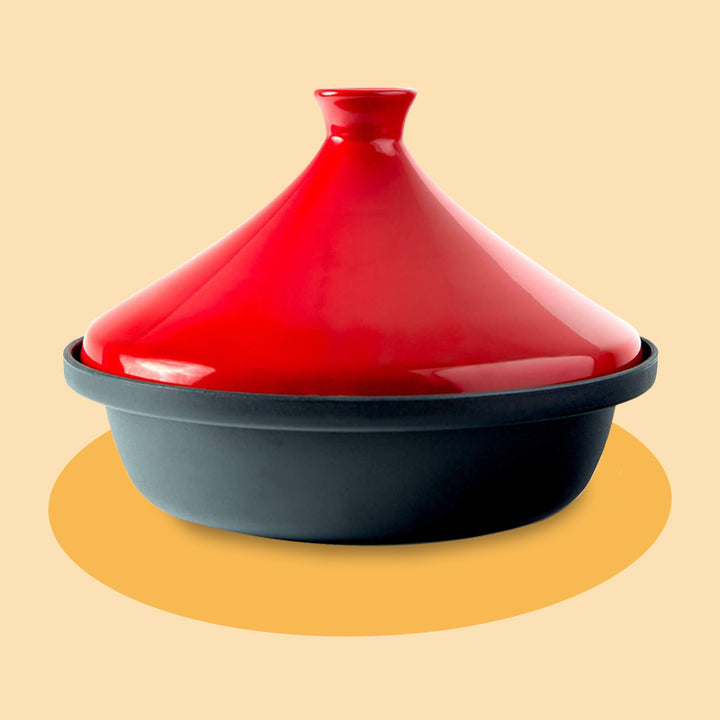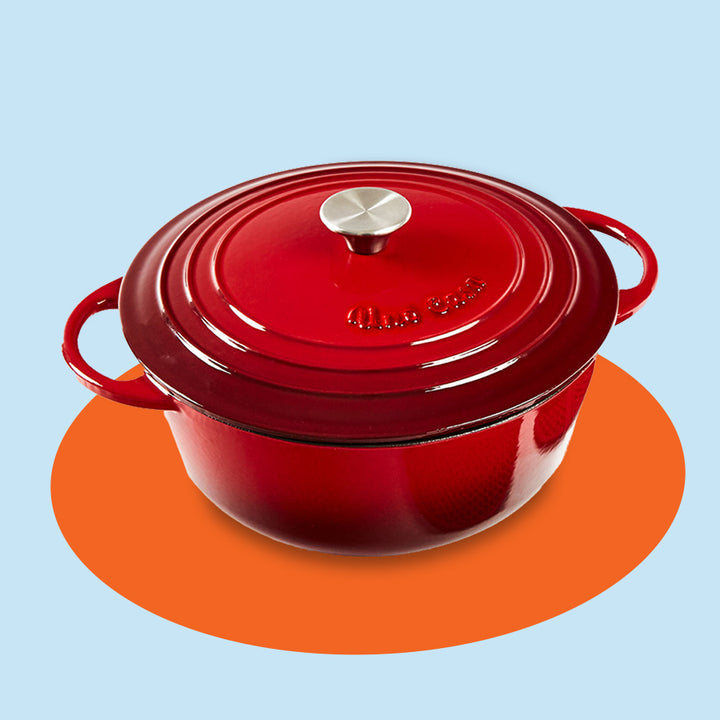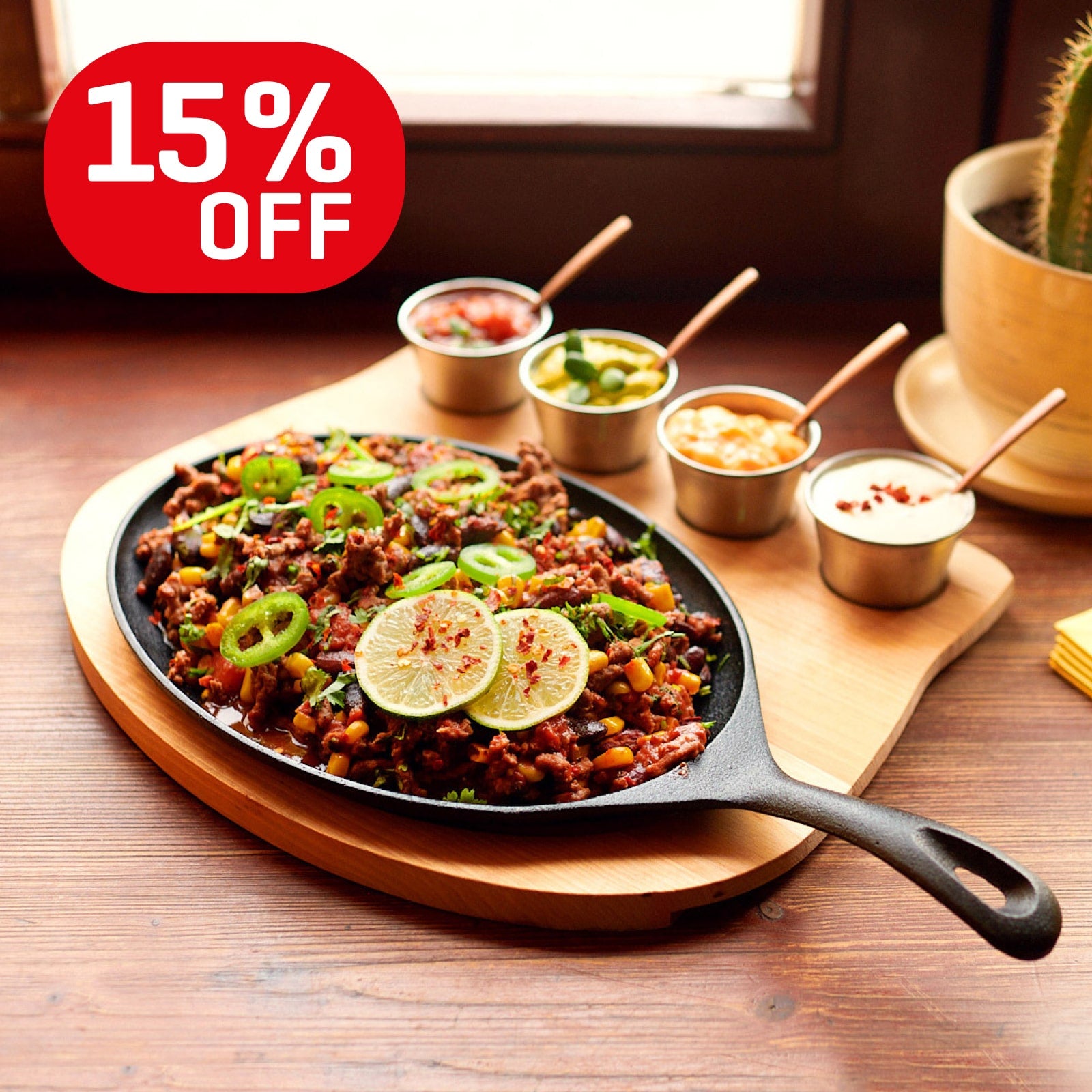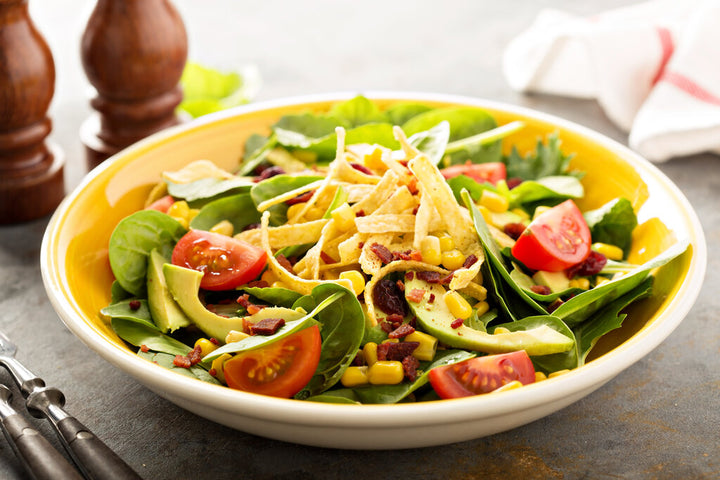How to Start Cooking at Home: Tips for Total Beginners
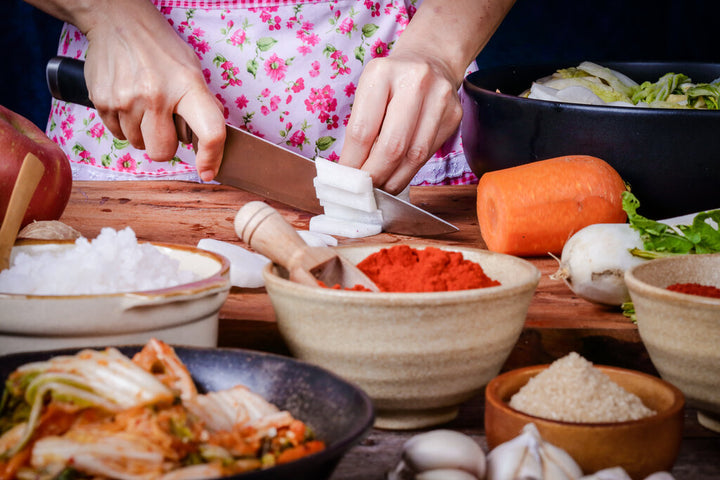
There's no shame in not knowing how to start cooking at home! Given the fast-paced lives we live and the easy access to delivery services and takeaway, it's no surprise that basic cooking skills are starting to be seen as something that our grandparents had but are irrelevant now.
Always remember that it's never too late to learn how to cook at home. With just a few essential pieces of cooking equipment and some entry-level culinary techniques, you can start to produce high-quality food with a simple set of recipes and ingredients. Homecooking is not only cheaper than eating in restaurants all the time (and we mean, a lot cheaper!), but it can be healthier, tastier, and catered to your specific preferences.
Grab your cast iron casserole dish, turn on the stovetop, and get ready to impress your friends and family with your homecooked meals!
Can I teach myself how to start cooking?
This should be common knowledge. Yes, anyone can teach themselves how to start cooking. You don't need to attend a French culinary school or be taught by a Michelin starred chef to learn cooking basics. All you need is an introductory understanding of simple cookery techniques and a willingness to get dirty in the kitchen!
In fact, you'll probably find that you already know many of the most basic cooking techniques, such as boiling water or frying in a skillet. You just need that extra confidence to put your skills into action after years of relying on takeout menus. You can progress without any fancy equipment or cooking utensils, just a stovetop, an oven, and a few pieces of versatile cookware to get started.
These days, the internet is a treasure trove of recipes and cooking guides. You'll find detailed lists of ingredients, step by step directions, and plenty of photos and videos to help you on your culinary journey.
Once you've started teaching yourself how to cook, you'll realize there are so many benefits to home cooking too. Here are a few great benefits of learning how to cook for yourself:
- Prepare healthier meals by using more nutritious recipes and ingredients.
- Select and source your own ingredients. You can buy ethically or buy direct from the source, for instance.
- Tailor-made meals to your tastes. If you like it salty, go ahead and add more salt, you're the chef!
- Tailor-made ingredients to meet dietary requirements, such as gluten-free or allergies.
- Save money by using store or market bought ingredients and turning them into your own delightful dishes.
- Save money by preparing bulk quantities of easy to make dishes (like casseroles or soups!).
- Learn valuable life skills that you can put to use in any kitchen.
- Become more adventurous in your eating choices as you develop your cooking techniques.
- Impress all your friends and family with delicious home cooking!
Beginner cooking tips for absolute beginners!
Okay, so it's all well and good us telling you how easy it is to start cooking at home. But how do you actually begin? What do you need to know? What equipment do you need? What recipes should you try?
Here are our beginner cooking tips to help you get started in the kitchen!
#1 Start with the basics
Our first tip sounds pretty simple, but you'll be amazed at how far you can get with the basics!
Take your time; don't get carried away too quickly. Cooking can be a game of patience, and you need to learn the basics and master the simple techniques before you can start preparing lavish dishes or elaborate sauces.
You need to know how to boil pasta before you can cook a carbonara, and you definitely need to know how to bake before you can make a wedding cake!
#2 Start small
Keeping in line beginning with the basics, you should start small. By small, we literally mean small: small portion sizes and servings.
Don't try and cook too much or cook for too many people at once. Once you've got a few techniques nailed down, start cooking just for yourself or for yourself and your partner.
Gain your confidence and practice your cooking craft before you start hosting huge garden parties or weekly dinner events. Again, take your time and be patient when you're first starting out.
#3 Master the essential cooking techniques
There are several essential cooking techniques that every beginner chef should master when they first start out. If you're new to the game of cookery, you might be wondering what the difference between broiling and braising is, or whats the distinction between a griddle and a grill. With so many cooking terms and techniques, it's enough to put you off cooking forever!
The reality is that until you're confident with basic techniques such as frying and boiling, you're not going to need braising and broiling. We'd recommend starting with the following cooking techniques before moving onto anything more advanced:
- Boiling and simmering: two of the most basic cooking techniques. Place a pot of water or broth on the stovetop and bring to a boil. Then, lower the heat, and allow the ingredients to simmer in hot water or broth—the best way to cook pasta and make soups.
- Stir-frying: rapidly heating ingredients, such as meat or vegetables, using a small amount of oil and high heat. Use a wok or skillet for best results. Keeps food crunchy and tasty and takes no time at all!
- Sauteeing: frying vegetables, small chunks of meat, or other ingredients in a skillet using a light layer of butter and medium heat. An easy way to quickly prepare dinner!
- Grilling: using dry heat for cooking larger cuts of meat or vegetables. You could use a grilling pan on the stovetop or a barbecue grill. It's a popular way to cook burgers, chicken, and sausages!
- Stewing: slowly cooking ingredients in a soupy broth using a vegetable or meat stock. You throw everything into one pot or a Dutch oven and let it simmer away for hours. It's an easy technique but takes a little patience.
- Roasting or baking: using dry heat in an oven to slowly roast or bake food through. You can bake casseroles, roast dinners, cakes, and so much more!
#4 Invest in essential cooking equipment
To master basic cooking techniques, you're also going to need some basic equipment to get started. You might already have a few items such as knives and a chopping board. We'd be surprised if you don't have plates or bowls to serve food in, at the very least!
When it comes to cooking, it's a good idea to invest in quality equipment from the start. Properly care for your equipment, and it can last a lifetime. Cast iron items can often be sturdier and longer-lasting than other equipment, while enamel-coated products are perfect if you don't like spending much time cleaning.
Here is a list of your home-cooking-starter-kit that every budding chef should have in their kitchen:
- Cutting knives
- Chopping board
- Wooden spoons
- Spatulas
- Measuring jug
- Mixing bowl
- Skillet for frying and sauteeing
- Wok for stir-frying
- Pots for boiling, simmering, and stewing
- Casserole dish
- Enamel Dutch oven for one-pot meals
You'll find that you might need more tools and specialized equipment as your cooking skills improve and you start becoming more adventurous. If you start baking, you're going to need a whisk and baking trays, for instance; or if you're really into Mexican food, then a tortilla press will save you so much time!
#5 Choose simple meals that you love to eat
We've already said it, but don't get too elaborate with your cooking too soon!
Start with simple meals, dishes that only require a few modest ingredients and cooking techniques, but that turn out delicious. Pick dishes that you love to eat, and you'll find that you soon love to cook them too!
Here are a few dishes that you can quickly start learning how to master in the kitchen:
- Pasta: simple pasta dishes such as spaghetti bolognese or macaroni and cheese are super easy to make.
- Stir-fry: grab a few vegetables, some shrimp, and soy sauce. Throw it all in a wok, and you'll have cooked your first meal in under five minutes!
- One-pot roasts: Slice up vegetables and a side of meat, place everything into a Dutch oven, and leave it to roast!
#6 Wash up as you go!
Our final tip could be the most valuable. Learn how to wash up as you go!
Washing up is the most unattractive side to cooking, and it's easy to be put off by the thought of having to scrub out pans or scour skillets clean. With a little prep and discipline, washing up can be easy.
Pour out a large pot or sink full of hot water when you start cooking. As soon as you finish with a utensil, rinse it off and put it away.
Try not to leave everything until the end; that's when the washing up becomes unmanageable. You likely won't bother, and when you next want to cook, you'll have no clean equipment. That's when you order the takeaway pizza.
Now you know how to start cooking!
There we go. Now you know how to start cooking in your own kitchen!
Cooking isn't a race, so take your time and progress at your own pace. Once you've mastered the essentials and have the confidence to cook and for other people, then there are plenty of adventurous recipes and complicated cooking techniques you can start to experiment with.
You can start preparing homemade pasta, layering your own elaborate lasagna, or baking peach cobblers. But since you have to start somewhere, why not bookmark our guide for later?
Leave a comment
Comments will be approved before showing up.
Also in Tips
